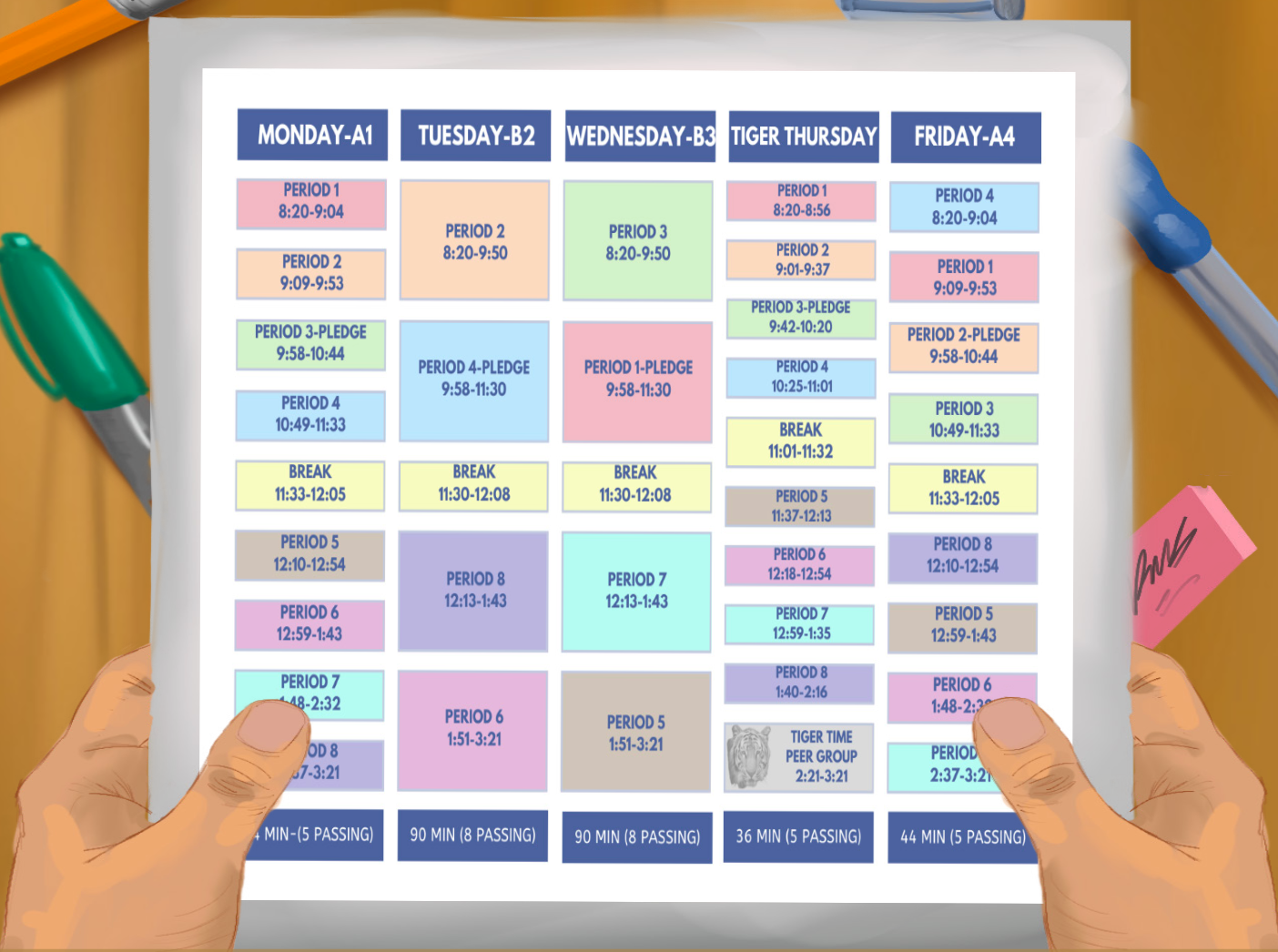On March 8, Principal Cecilia Birge presented the prospective new schedule for the 2024–2025 school year to the Student Achievement Committe, which will incorporate two days of 90-minute block periods, shorter Thursdays, and minimize the rotation of letter days. To test the efficacy of this schedule, PHS will conduct a pilot run the week of June 3rd.
These schedule changes are part of a district initiative to maximize student learning through increased structure and stability in school instruction.
The rotating letter day schedule that PHS currently follows is unaccommodating to unexpected calendar interruptions, the expansion of school programs and classes, and makes the scheduling of PHS staff meetings and substitute teacher arrangements difficult. Following the current schedule’s arrangements, P.E. classes and science classes must be placed back-to-back on lab days. This scheduling marriage between P.E. and science classes creates an inflexibility for the scheduling of “singleton” classes, or classes that only meet once a day.
“Classes will become more even,” said Senior Class President Aidan Linkov ‘24. “Because of the constraint of the schedule [that is] locked up by science and P.E., when we have someone mentoring an ESL class or some other special needs, then that’s almost half of the day they’re scheduled, and there’s no flexibility.”
Class size restrictions and inonsistencies exacerbate the scheduling issue.
“When you couple that with constrained physical space where some classrooms only have 15 kids [and] other classrooms have 35, we’re talking about learning loss for students and making it difficult for teachers,” said PHS Principal Cecilia Birge.
One of the statistics that guided the administration’s decision to reform the schedule was the room utilization rate. According to Birge, at an optimal level, the room usage in a school should be at about 85 percent, but this year, it has reached upwards of 93 percent.
“After the pandemic, with additional enrollment, as well as the expansion of our current PHS programs, we really maxed out our facilities, especially with classroom space ... [t]he issue is that we need extra classrooms in case of a leak or relocation,” Birge said.
In line with maximizing student learning, the addition of 90-minute blocks on B2 and B3 days aims to give teachers more time to further implement project-based learning. Additionally, 45 minutes of gym classes on B2 and B3 days are allotted to learning labs for freshmen, or a free period for upperclassmen and eligible sophomores in their second semester.
“I want [underclassmen] to learn to earn that free ... so if they have too many absences or too many disciplinary issues, they’re going to lose that privilege,” said Birge. “We give kids a lot of freedom [at PHS], but if you don’t know how to manage that freedom, it hurts. So this schedule is intended to build up that self discipline.”
The PHS administration made alterations to this schedule with the input of various teachers and staff using a survey. Additionally, the Bell Schedule Committee, established in 2017, revised the schedule before presentation to the Master Schedule Committee and PPS Board of Education. The new schedule’s removal of lab days means science teachers lose 28 minutes of instructional time per schedule cycle, so Birge maintained close communication with the science department through the process, which began in early December. Birge also met with student board liaisons and the PHS Student Council to discuss the changes.
“The [new schedule] went through multiple iterations and was a collaboration between everybody in the building,” said Birge. “This is important because our bell schedule plays a critical role in structuring our learning environment and has a big impact on teaching and learning, because it affects everything from the pacing of lessons to student and teacher well-being ... it drives the kind of school that we have.”
